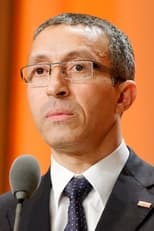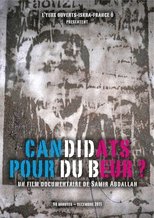
|
|
Azouz Begag (Arabic: عزوز بقاق) (born 5 February 1957) is a French writer, politician and researcher in economics and sociology at the CNRS. He was the delegate minister for equal opportunities of France in the government of French Prime Minister Dominique de Villepin (Union for a Popular Movement, UMP) till 5 April 2007. He resigned to support the moderate centrist candidate François Bayrou, one of the two UMP ministers to do so. Before becoming minister, Begag was decorated and made Chevalier de l’Ordre national du Mérite and Knight of the Legion of Honor. Begag is the son of Algerian parents who arrived in France in 1949. In his teens, he qualified as an electrician. He grew up in a shanty town outside Lyon, "les bas quartiers", before the family progressed to a tower block in the Cité de la Duchère. Begag is the father of two daughters. He is divorced from his wife. Begag has a doctorate in Economics from Lumière University Lyon 2. He has combined the functions of researcher in economy at the CNRS and at the Maison des sciences sociales et humaines of Lyon since 1980 and the one of professor at the École Centrale de Lyon. A visiting professor in Spring 2002 at the Winthrop-King Institute for Contemporary French and Francophone Studies at Florida State University, Begag was later made a honorary professor. In addition, he was a visiting professor at Cornell University in New York for one year. Begag's academic career, culminating in his place as a researcher at the CNRS, as well as his political career to date, have also centered around the problems of unequal opportunity for those brought up in industrial suburbs and ghettos. In his account in 2007 of his two years as minister, The Sheep in the Bathtub, he describes his research work as that of a sociologist. Begag has written approximately 20 literary books for adults and children, as well as songs. Furthermore, he is the scriptwriter of the French movie Camping à la ferme ("Camping at the farm"), where he exposed his vision of "three levels of riches" multiculturalism in today's French society: the advantages of its relatively new multiethnicity due to a new non-European immigration mixed with the basis of its historical and natural multiculturality whether coming from the riches of its several regional cultures and languages or from the successful integration of previous waves of European immigration during its history. ... Source: Article "Azouz Begag" from Wikipedia in English, licensed under CC-BY-SA 3.0. |






